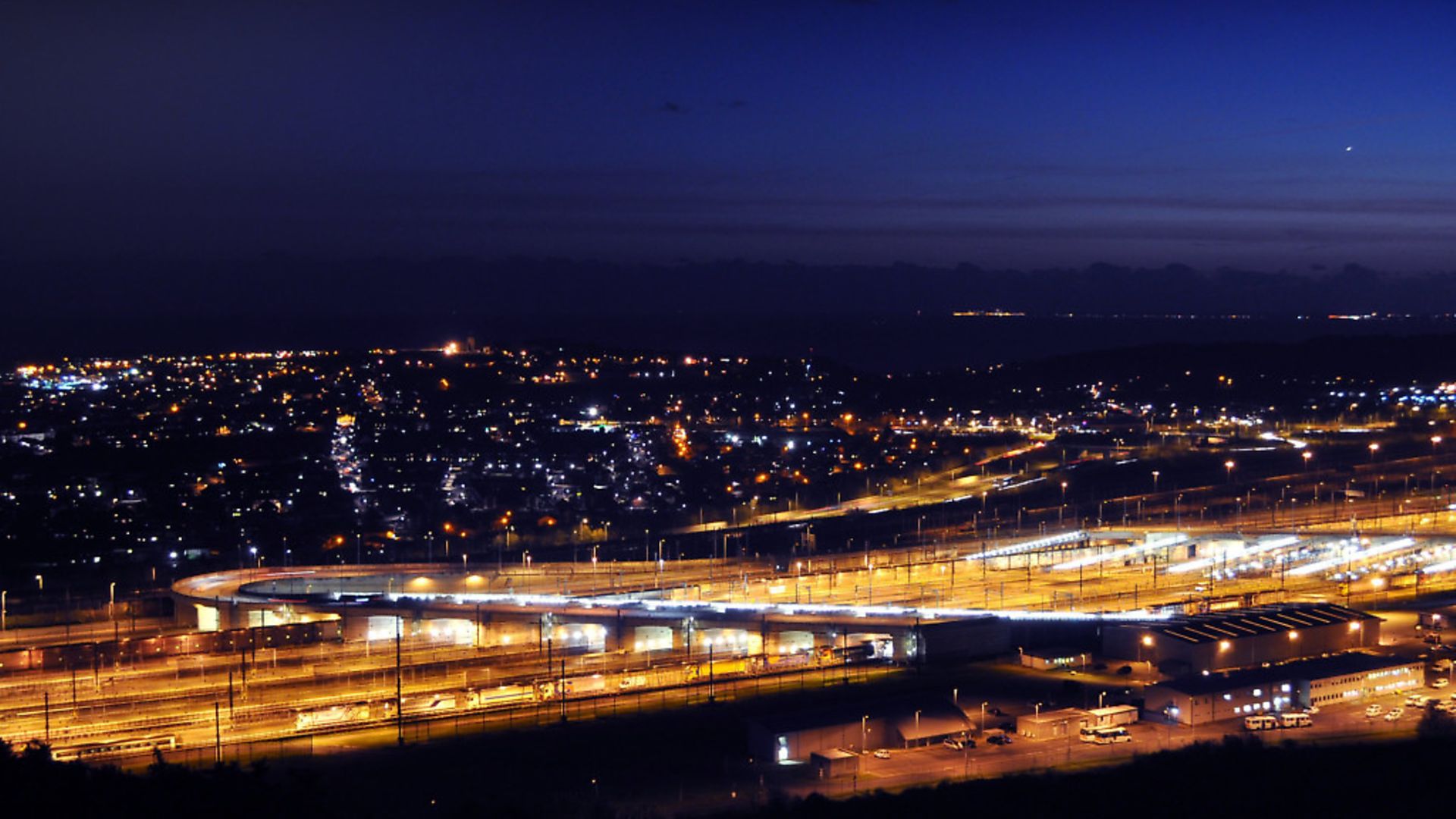
There aren’t many greater symbols of the UK’s ties to Europe than the Channel Tunnel – a transport operator many are desperately trying to keep on track after Brexit
Thirty years ago this month, the first spade broke ground on the Channel Tunnel, for so long a metaphor used by Europhiles and Eurosceptics alike for the project of closer integration with Europe.
Groupe Eurotunnel, which has become one of the UK and France’s best known transport operators, carrying 21 million passengers a year over its 31 miles of railway tracks, said this week that it was dropping the Euro reference from its parent company name and would henceforth be called Getlink.
But this is no Brexit surrender, rather it is a signal that the company is actually becoming more closely intertwined with the Continent. From 2020, Getlink won’t just carry people and freight between the continent and the UK, but also electricity and fibre optic cables.
Jacques Gounon, the French chief executive, who has steered Eurotunnel through trials and tribulations for more than 12 years, told me the board had deliberately chosen an Anglo Saxon rebrand.
‘We are entering a new era for our business. We are very proud of our binational culture but in this online world, you need to have an Anglo Saxon name. Eurotunnel is a very strong brand, we are very proud of what has been achieved, but we want to announce that we are also working in this new world and have new businesses like Eleclink, our electricity interconnector. This is the Getlink spirit.’
Gounon arrived at Eurotunnel when it was in the throes of its debt crisis, shortly after its entire board had been sacked following a shareholder revolt led by a failed French presidential candidate.
The Channel Tunnel group’s debts were £6.2bn and it was unable to pay its interest bill.
The advent of cheap air travel and the rise of the budget airlines had blown a hole in its business plan, which had been overoptimistic anyway.
In 2007 Eurotunnel was forced into a complex debt restructuring. The tunnel’s lenders, many from the US, took a haircut. Shareholders who had enthusiastically bought into the company at privatisation had to wait 23 years for a dividend payment.
In 2017, however, Getlink is in good health with annual revenues of 1bn euros, and profits reached 200m euros in 2016, the best year in its history.
The Eurotunnel name will be retained for its Le Shuttle services from Folkestone to Calais. Eurostar, the passenger train service which uses the tunnel and pays a fee to Eurotunnel, carries a further 10 million passengers a year.
Yet the next two years will be critical for the company, as Gounon knows.
There is no chance, as one tabloid headline declared, of the tunnel being blocked for seven years by Brexit, but quick decisions are need on how the border will operate.
Getlink argues that it should be treated as a land border and wants the same deal as Ireland, whatever that will be.
In theory, Getlink is ready for Brexit. Its Coquelle terminal is a fortress after it invested heavily to keep migrants away from the railway lines and freight trucks. Its relations with the French border forces, the Home Office and the transport police are first rate.
It has enhanced technology to help speed passengers through new controls, but it can do little until it is told by the politicians what mechanisms will be used.
Gounon believes that there will be no drop-off in traffic through the tunnel when Brexit happens and promises that there will be no queues or tail-backs. The company is building up its tracking and digital capabilities and already carries one million parcels a day for Amazon from the UK to the Continent. Gounon thinks he is better placed than any of his competitors to speed freight and passengers to Europe.
Yet while the buck for the company’s performance stops with him, he is not really in control.
Business leaders like to take action, sometimes excessively so.
Changing the name is a signal to the world that the company is on the front foot, ready to make the most of what comes.
But it is also an admission of frustration and impotence.
Having got the Channel Tunnel to a point where it is finally financially healthy, as well as genuinely loved and useful to millions of people, the project could be jeopardised by negotiating room tactics that take little account of people’s jobs and livelihoods.
Warning: Illegal string offset 'link_id' in /mnt/storage/stage/www/wp-includes/bookmark.php on line 357
Notice: Trying to get property 'link_id' of non-object in /mnt/storage/stage/www/wp-includes/bookmark.php on line 37






